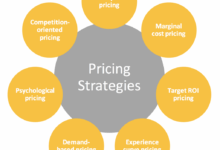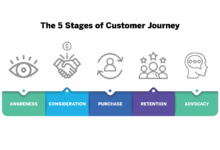CRM For Sales And Marketing Automation: Boost Your Business Efficiency
CRM for Sales and Marketing Automation is a powerful tool that revolutionizes how businesses operate, streamlining processes, and boosting efficiency to new heights. From lead generation to personalized customer engagement, this comprehensive system offers endless possibilities for growth and success.
In this article, we will delve into the key features, benefits, and importance of CRM integration with sales and marketing automation tools, providing valuable insights for businesses looking to optimize their strategies and drive conversions.
Introduction to CRM for Sales and Marketing Automation
CRM, or Customer Relationship Management, plays a crucial role in sales and marketing automation by helping businesses manage interactions and relationships with potential and existing customers. CRM systems are designed to streamline processes, organize customer data, and improve communication within the company.
How CRM Systems Help Businesses
- Centralized Customer Data: CRM systems allow businesses to store all customer information in one place, making it easily accessible to sales and marketing teams.
- Improved Customer Relationships: By tracking customer interactions and preferences, businesses can personalize their marketing efforts and provide better customer service.
- Efficient Communication: CRM systems enable seamless communication between different departments, ensuring everyone is on the same page regarding customer interactions.
Benefits of Integrating CRM with Sales and Marketing Automation Tools
- Increased Efficiency: Integrating CRM with sales and marketing automation tools eliminates manual tasks, allowing teams to focus on high-value activities.
- Enhanced Lead Management: By automating lead nurturing processes, businesses can prioritize leads and convert them into customers more effectively.
- Better Reporting and Analytics: CRM integration provides valuable insights into customer behavior and sales performance, enabling data-driven decision-making.
Importance of CRM Integration
Integrating CRM with sales and marketing automation systems is crucial for businesses looking to streamline their processes and improve overall efficiency. By connecting these platforms, companies can effectively manage customer data, enhance lead generation, and boost conversion rates.
Enhanced Customer Data Management
Integrating CRM with sales and marketing automation tools allows for seamless data synchronization across various departments. For example, when a sales representative interacts with a lead and updates their information in the CRM system, that data is automatically shared with the marketing team. This ensures that all teams are working with the most up-to-date customer information, leading to more personalized communication and better customer service.
Improved Lead Generation and Conversion Rates
CRM integration enables businesses to track leads throughout the entire sales cycle, from initial contact to conversion. By analyzing customer interactions and behaviors, companies can identify potential leads, nurture them with targeted marketing campaigns, and ultimately increase conversion rates. This data-driven approach allows businesses to optimize their sales and marketing strategies for better results.
Key Features of CRM for Sales and Marketing Automation
CRM systems offer a range of key features that are essential for effective sales and marketing automation. These features play a crucial role in streamlining processes, improving customer relationships, and boosting overall productivity.
Lead Scoring and Segmentation
Lead scoring and segmentation are key features of CRM systems that help businesses target their marketing campaigns effectively. By assigning scores to leads based on their behavior and demographics, companies can prioritize high-quality leads and tailor their marketing efforts accordingly. Segmentation allows for the categorization of leads into specific groups, enabling personalized and targeted marketing strategies.
Automation of Repetitive Tasks
CRM systems automate repetitive tasks such as data entry, follow-up emails, and updating customer records. By automating these routine processes, sales and marketing teams can save time, reduce manual errors, and focus on more strategic activities that drive revenue.
Integration with Other Tools
CRM systems integrate seamlessly with other tools such as email marketing platforms and social media management tools. This integration streamlines marketing efforts by allowing teams to access all relevant data and communications in one centralized system, enhancing collaboration and efficiency.
Data Analytics for Customer Insights
Data analytics is a crucial feature of CRM systems that enables businesses to track customer interactions, analyze trends, and make data-driven decisions. By leveraging data analytics, companies can gain valuable insights into customer behavior, preferences, and buying patterns, ultimately improving their sales strategies and customer engagement.
Mobile CRM Applications
Mobile CRM applications provide sales and marketing teams with on-the-go access to critical customer data, lead information, and communication tools. These applications enable teams to stay connected, update records in real-time, and respond promptly to customer inquiries, enhancing productivity and efficiency even when working remotely.
Data Management in CRM Systems
Effective data management is crucial for the success of CRM systems in sales and marketing. It involves organizing, storing, and maintaining customer data securely to ensure accurate and up-to-date information for personalized campaigns.
Secure Organization and Storage of Customer Data
- CRM systems use encrypted databases and secure servers to store customer data safely.
- Access controls and permissions are implemented to restrict unauthorized access to sensitive information.
- Regular backups and disaster recovery plans are in place to prevent data loss.
Importance of Data Accuracy and Updating
- Accurate data ensures that marketing campaigns are targeted effectively and sales strategies are based on reliable information.
- Regularly updating customer information helps in maintaining a current database for better decision-making.
- Automated processes can be set up to prompt users to update information or verify data accuracy.
Data Cleansing and Deduplication
- Data cleansing involves removing outdated or incorrect data entries to maintain data integrity.
- Deduplication identifies and eliminates duplicate records to prevent confusion and ensure a single source of truth.
- Automated tools and algorithms are used to streamline the data cleansing and deduplication process.
Data Segmentation Strategies for Personalization
- Segmenting data based on demographics, behavior, or preferences allows for targeted marketing campaigns.
- Personalized content and offers can be tailored to specific customer segments for higher engagement and conversion rates.
- Dynamic segmentation enables real-time adjustments to marketing strategies based on customer interactions and feedback.
Personalization and Customer Engagement
CRM systems play a crucial role in enabling personalized customer interactions by capturing and analyzing customer data to tailor communication and services.
Role of CRM in Creating Tailored Marketing Messages and Campaigns
CRM systems allow businesses to create targeted marketing messages and campaigns based on customer preferences, behavior, and past interactions. By segmenting customers into different groups, businesses can send personalized messages that resonate with each group’s specific needs and interests.
Examples of How CRM Enhances Customer Engagement Through Targeted Communications
- Personalized Email Campaigns: CRM systems can track customer behavior and preferences to send personalized email campaigns with relevant content, increasing engagement and conversion rates.
- Dynamic Website Content: CRM integration with websites enables the display of personalized content based on the visitor’s past interactions, creating a more engaging and tailored experience.
- Social Media Engagement: CRM systems can help businesses track and analyze customer interactions on social media platforms, allowing them to engage with customers in real-time and respond to their needs promptly.
Reporting and Analytics in CRM for Sales and Marketing Automation
Reporting and analytics play a crucial role in CRM systems for tracking and evaluating sales and marketing performance. By providing insights into customer interactions, purchase patterns, and campaign effectiveness, CRM analytics enable businesses to make informed, data-driven decisions.
Real-time Insights and Decision Making
- CRM analytics offer real-time insights into sales and marketing activities, allowing businesses to react promptly to changing market conditions and customer behavior.
- By analyzing data on customer interactions, purchases, and engagement metrics, businesses can identify trends and patterns that inform strategic decision-making.
Setting Up Custom Reports
- To set up custom reports in a CRM system, start by defining the metrics and KPIs that align with your business goals and objectives.
- Choose the relevant data fields and parameters to include in the report, ensuring that the information gathered will provide actionable insights.
- Utilize the reporting tools within the CRM system to generate custom reports that analyze sales data, customer engagement, and campaign performance.
Key Performance Indicators in CRM Analytics
- Common KPIs used in CRM analytics include customer acquisition cost, customer retention rate, lead conversion rate, and customer lifetime value.
- These KPIs help businesses evaluate the effectiveness of their marketing campaigns, customer engagement strategies, and overall sales performance.
Identifying Trends in Customer Behavior
- CRM analytics can identify trends in customer behavior, such as purchase frequency, preferred communication channels, and product preferences.
- By analyzing these trends, businesses can tailor their marketing strategies to better meet customer needs and preferences, ultimately improving customer satisfaction and retention.
Measuring ROI of Marketing Initiatives
- CRM reporting tools allow businesses to measure the return on investment (ROI) of various marketing initiatives, such as email campaigns, social media ads, and promotions.
- By tracking the performance of these initiatives through CRM analytics, businesses can optimize their marketing spend and allocate resources effectively to achieve maximum ROI.
Integration with Marketing Automation Tools
Integrating CRM with marketing automation platforms offers numerous benefits for businesses looking to streamline their sales and marketing processes. By combining these tools, companies can create a cohesive strategy to nurture leads and drive conversions effectively.
Benefits of Integrating CRM with Marketing Automation Platforms
- Improved lead nurturing and conversion rates
- Enhanced customer segmentation and targeting
- Seamless communication between sales and marketing teams
- Automated workflows for efficient campaign management
Successful Campaigns Powered by CRM and Marketing Automation Integration
- Amazon’s personalized product recommendations based on customer behavior
- Salesforce’s lead scoring and automated follow-up emails
- HubSpot’s targeted email campaigns with dynamic content
Comparison of Marketing Automation Tools and CRM Compatibility
- HubSpot: Compatible with most CRM systems, offers robust automation features
- Marketo: Integrates well with Salesforce, ideal for complex lead management
- Pardot: Built for Salesforce users, focuses on B2B marketing automation
Setting Up Integration Between CRM Software and Marketing Automation Platform
- Choose a CRM and marketing automation platform that are compatible.
- Access the integration settings within both systems.
- Follow the step-by-step instructions provided by the platforms to connect them.
- Test the integration to ensure data sync and automation workflows are functioning correctly.
Impact of Personalized Marketing Strategies Through CRM and Marketing Automation Integration
Personalized marketing strategies made possible by CRM and marketing automation integration lead to higher engagement and conversion rates. By analyzing customer data and behavior, businesses can create tailored campaigns that resonate with their target audience, resulting in a more effective marketing approach.
Automation Workflows in CRM Systems
Automation workflows play a crucial role in streamlining processes and improving efficiency within CRM systems. These workflows automate repetitive tasks, allowing sales and marketing teams to focus on more strategic activities.
Key Components of Automation Workflows
- Trigger: Defines the event that initiates the workflow, such as a new lead entering the system.
- Conditions: Specify the requirements that need to be met for the workflow to proceed, like lead score or specific actions.
- Actions: Determine the tasks to be performed automatically, such as sending emails, updating records, or assigning tasks.
- Time Delays: Introduce pauses between actions to ensure the right timing for each step in the workflow.
Setting up an Automated Workflow
To set up an automated workflow in a CRM platform, follow these steps:
- Identify the objective of the workflow.
- Define the trigger that will start the workflow.
- Create conditions to guide the flow of the workflow.
- Add actions to be executed automatically based on the conditions.
- Set up time delays between actions for optimal timing.
- Test the workflow to ensure it functions as intended.
Real-life Scenarios of Increased Productivity
– Implementing an automated lead nurturing workflow that sends targeted emails based on user behavior resulted in a 20% increase in conversion rates.
– Setting up an automated task assignment workflow for sales representatives improved response time to leads by 30%, leading to higher customer satisfaction.
Role of AI and Machine Learning
AI and machine learning technologies enhance automation workflows by:
– Predicting customer behavior and recommending the next best action.
– Analyzing data to optimize workflows for better performance.
– Personalizing communication with customers based on historical interactions.
Metrics and KPIs for Automation Workflows
Metrics used to measure the effectiveness of automation workflows in CRM systems include:
- Conversion Rates: Measure the percentage of leads that progress through the automated workflow and convert into customers.
- Response Time: Evaluate how quickly leads are engaged and responded to within the workflow.
- Engagement Rates: Track how actively leads interact with the automated communication and tasks.
- Revenue Generated: Calculate the revenue directly attributed to the automated workflows implemented.
Customer Journey Mapping with CRM
Customer journey mapping plays a crucial role in CRM for sales and marketing by helping businesses understand and analyze the entire customer experience. This process involves tracking and visualizing every interaction a customer has with a company, from the initial contact to post-purchase follow-ups. CRM systems are instrumental in this task as they enable businesses to collect and analyze data at each touchpoint, providing valuable insights into customer behavior and preferences.
Role of CRM in Customer Journey Mapping
- CRM systems allow businesses to track customer interactions across various channels, including email, social media, and in-person interactions.
- By consolidating customer data in a centralized system, CRM enables businesses to create a holistic view of the customer journey.
- Through detailed reporting and analytics features, CRM systems help identify patterns and trends in customer behavior, facilitating the identification of pain points and areas for improvement.
Enhancing Customer Experience through Journey Mapping
- Customer journey mapping helps businesses understand the customer’s perspective, leading to more personalized and targeted marketing strategies.
- By aligning customer journey maps with CRM data, businesses can deliver relevant content and offers at each stage of the customer journey, enhancing engagement and loyalty.
- Mapping the customer journey allows businesses to anticipate customer needs and preferences, enabling proactive and tailored interactions.
Creating Effective Customer Journey Maps in CRM
- Identify customer touchpoints and interactions across different channels.
- Define customer personas and segment them based on behavior and preferences.
- Analyze data from CRM systems to understand customer behavior and pain points.
- Create a visual representation of the customer journey, highlighting key touchpoints and opportunities for engagement.
AI and Automation in Customer Journey Mapping
- AI-powered tools in CRM systems can analyze large datasets to identify trends and patterns in customer behavior, enhancing the accuracy of customer journey maps.
- Automation features enable businesses to deliver personalized content and messages to customers at the right time, improving overall engagement and conversion rates.
Lead Management and Nurturing in CRM
Lead management in CRM systems plays a crucial role in nurturing potential customers and guiding them through the sales process efficiently. By effectively managing leads, businesses can increase conversion rates and optimize their sales strategies.
Lead Scoring and Tracking
Lead scoring and tracking are essential components of CRM for identifying sales-ready leads. Through lead scoring, CRM systems assign values to leads based on their interactions with the company, helping sales teams prioritize their efforts on leads that are most likely to convert. Tracking leads allows businesses to monitor lead behavior, engagement levels, and progress in the sales pipeline.
- Lead scoring assigns values to leads based on predefined criteria such as demographics, behavior, and engagement.
- Tracking leads involves monitoring activities like email opens, website visits, and content downloads to gauge lead interest.
- Identifying sales-ready leads through lead scoring and tracking helps sales teams focus on high-potential opportunities.
Automated Lead Nurturing Processes
CRM automates lead nurturing processes to move leads through the sales funnel effectively. By leveraging automated workflows, personalized communication, and targeted content, CRM systems ensure that leads receive the right information at the right time, increasing the chances of conversion.
- Automated workflows in CRM trigger actions like follow-up emails, reminders, and notifications based on lead behavior.
- Personalized communication through CRM allows businesses to tailor messages and offers to individual leads, enhancing engagement.
- Targeted content delivery ensures that leads receive relevant information that addresses their specific needs and pain points.
CRM Customization and Scalability
Customization and scalability are essential aspects of CRM systems to ensure they meet the specific needs of businesses and can adapt to changing requirements. Let’s delve into the options available for customization and the scalability of CRM solutions.
Customization Options in CRM Systems
- Custom Fields: CRM systems offer the flexibility to create custom fields to capture unique data points specific to your business.
- Workflow Customization: Businesses can tailor workflows to match their internal processes, ensuring efficient task management.
- User Interface Personalization: CRM systems allow users to customize their interface settings for a more intuitive user experience.
Scalability of CRM Solutions
- Growing Businesses: CRM systems should be able to scale alongside a growing business, accommodating an increasing volume of data and users.
- Integration Capabilities: Scalable CRM solutions can easily integrate with other tools and systems as the business expands.
- Cloud-Based Solutions: Cloud-based CRM systems offer scalability by providing the flexibility to adjust storage and user capacity based on business needs.
Examples of CRM Customization Benefits
- Improved User Adoption: Customizing the CRM system to align with user workflows and preferences enhances user adoption rates and overall engagement.
- Enhanced Efficiency: Tailoring CRM functionalities to match specific business requirements can significantly boost operational efficiency and productivity.
- Increased Data Accuracy: Customization allows businesses to capture and analyze data in a way that is most relevant to their operations, leading to better decision-making.
Mobile CRM Applications
Mobile CRM applications are essential tools for sales and marketing teams to stay connected and productive while on the go. These apps provide numerous benefits that enhance accessibility and efficiency in managing customer relationships.
Benefits of Mobile CRM Applications
- Access to real-time customer data and insights anytime, anywhere
- Increased productivity through quick response to leads and inquiries
- Improved collaboration among team members through instant updates and notifications
Features in Mobile CRM Apps
- Offline access to important customer information for field sales activities
- GPS integration for route optimization and location-based sales opportunities
- Mobile-friendly interface for ease of use on smartphones and tablets
Comparison of Mobile CRM Apps
- Consider user interface design, customization options, and ease of navigation
- Evaluate integration capabilities with existing systems for seamless data flow
- Look for security features such as data encryption and multi-factor authentication
Integration of Mobile CRM Apps
- Ensure compatibility with current sales and marketing tools for data synchronization
- Establish data sharing protocols to maintain consistency across platforms
- Train users on best practices for utilizing mobile CRM apps effectively
CRM Security and Compliance
Data security and compliance are crucial aspects of CRM systems, especially when dealing with sensitive customer information. Let’s delve into the importance of maintaining high levels of security and compliance within CRM platforms.
Importance of Data Security and Compliance
- Protecting customer data: CRM systems store a vast amount of customer data, including contact details, purchase history, and communication records. Ensuring data security helps prevent unauthorized access and data breaches.
- Building trust: By implementing robust security measures, businesses can instill trust in their customers that their information is safe and protected.
- Compliance with regulations: Data protection laws such as GDPR (General Data Protection Regulation) and CCPA (California Consumer Privacy Act) require businesses to safeguard customer data and provide transparency in data handling processes.
Measures Taken by CRM Providers
- Encryption: CRM providers often use encryption techniques to secure data both in transit and at rest, making it harder for unauthorized users to access sensitive information.
- Access controls: Implementing strict access controls ensures that only authorized personnel can view or modify customer data within the CRM system.
- Regular audits: CRM providers conduct regular security audits to identify vulnerabilities and address them promptly, ensuring ongoing data protection.
CRM Systems and Regulatory Compliance
- GDPR compliance: CRM systems help businesses comply with GDPR requirements by providing features for data minimization, consent management, and data subject rights fulfillment.
- CCPA compliance: CRM platforms assist in CCPA compliance by enabling businesses to respond to consumer data requests, maintain data inventory, and ensure data security and privacy.
- Regulatory updates: CRM providers often update their systems to align with changing data protection regulations, helping businesses stay compliant with evolving legal requirements.
Training and Support for CRM Users
Training and support are crucial aspects of effective CRM utilization, ensuring that users can maximize the system’s potential and proficiency. By investing in proper training programs and ongoing support, businesses can enhance user adoption and overall productivity.
Role of Training Programs
Training programs play a vital role in familiarizing users with the CRM system, its features, and functionalities. They help users understand how to navigate the platform, input and manage data effectively, and utilize automation tools for improved sales and marketing processes. Training programs also aid in increasing user confidence and reducing errors, ultimately leading to better outcomes for the business.
Tips for Businesses
- Provide comprehensive initial training sessions for new CRM users to ensure a solid foundation of knowledge.
- Offer continuous training opportunities for existing users to keep them updated on new features and best practices.
- Create user-friendly training materials, such as guides, tutorials, and videos, to facilitate self-learning and quick reference.
- Establish a dedicated support team or help desk to address user queries, troubleshoot issues, and provide timely assistance.
- Celebrate user achievements and milestones to boost morale and encourage ongoing engagement with the CRM system.
Future Trends in CRM for Sales and Marketing Automation
The future of CRM for sales and marketing automation is poised to witness several key trends that will shape the way businesses interact with customers and manage their data.
Role of Chatbots and Virtual Assistants
Chatbots and virtual assistants are revolutionizing customer interactions within CRM systems by providing instant support and personalized responses. They enhance efficiency and engagement by handling routine queries and directing customers to the right resources.
Data Analytics and Predictive Modeling
Data analytics and predictive modeling are becoming crucial in optimizing CRM strategies. By leveraging data insights, businesses can anticipate customer needs, personalize interactions, and forecast trends to enhance decision-making.
Integration of Social Media Platforms
The integration of social media platforms with CRM tools is essential for comprehensive customer engagement. It allows businesses to track customer interactions across channels, gather valuable insights, and tailor their marketing efforts accordingly.
Security Measures and Compliance Requirements
Ensuring robust security measures and compliance requirements when storing customer data in CRM databases is paramount. With the increasing focus on data privacy regulations, businesses need to prioritize data protection to build trust with customers.
Scalability and Flexibility of Cloud-Based Solutions
Cloud-based CRM solutions offer scalability and flexibility to adapt to evolving business needs. By leveraging cloud technology, businesses can easily scale their CRM systems, access real-time data, and streamline operations efficiently.
Ending Remarks
In conclusion, CRM for Sales and Marketing Automation is not just a tool but a game-changer for businesses seeking to stay ahead in today’s competitive market. By harnessing the power of data management, automation workflows, and personalized customer engagement, businesses can unlock their full potential and achieve remarkable success.




